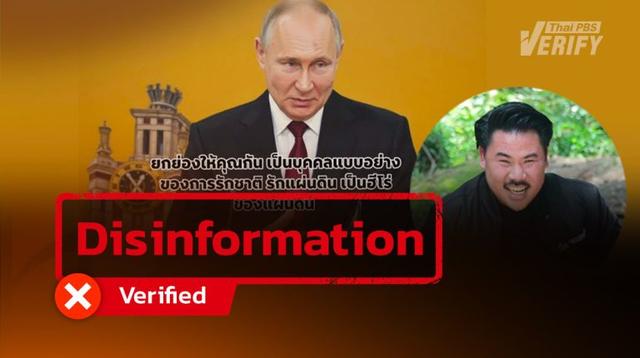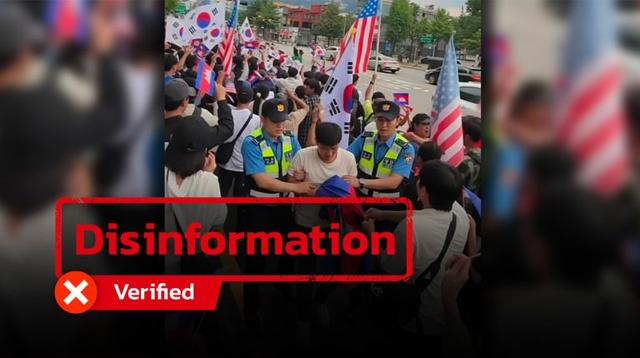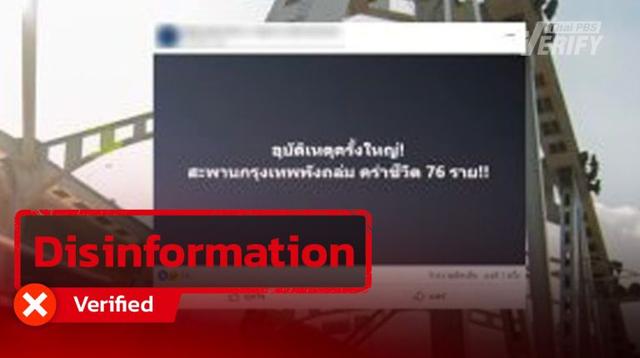Thai PBS Verify traced the source of the content to Facebook
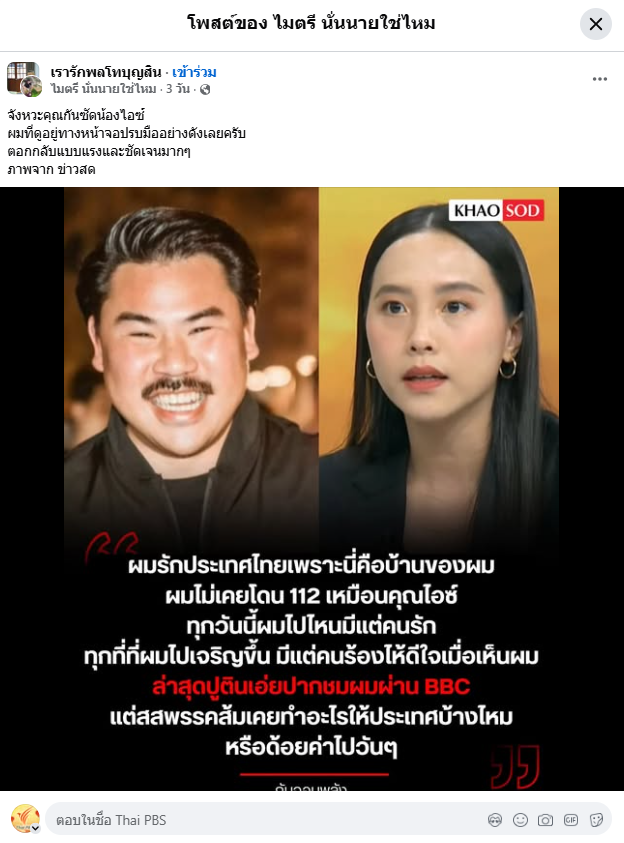
A screenshot shows a post claiming to cite Khaosod News, publishing a quoted statement attributed to Kan Chom-Phalang.
A Facebook user named “Maitri Nan-Nai-Chai-Mai” posted images of Kan Chom-Phalang and Ice Rukchanok, along with the following caption:
“I love Thailand because this is my home. I have never been charged under Section 112 like you, Ice. Wherever I go, people love me. Every place I visit prospers, and people cry with joy when they see me. Recently, Putin praised me through the BBC. But what have MPs from the Orange Party ever done for the country? Or do they just belittle others every day? — Kan Chom-Phalang.”
The post also stated that the image was from a verbal exchange between Kan Chom-Phalang and Ice Rukchanok, and claimed that the image originated from Khaosod.
A quote that does not exist
Thai PBS Verify examined the post using Google Lens and found that the news image actually came from an interview on the program “Kamkon Khao Khuay Nok Chor” (Workers’ News Off-Screen Talk), which featured Kan Chom-Phalang and Ice Rukchanok in a live broadcast on October 20, 2025.
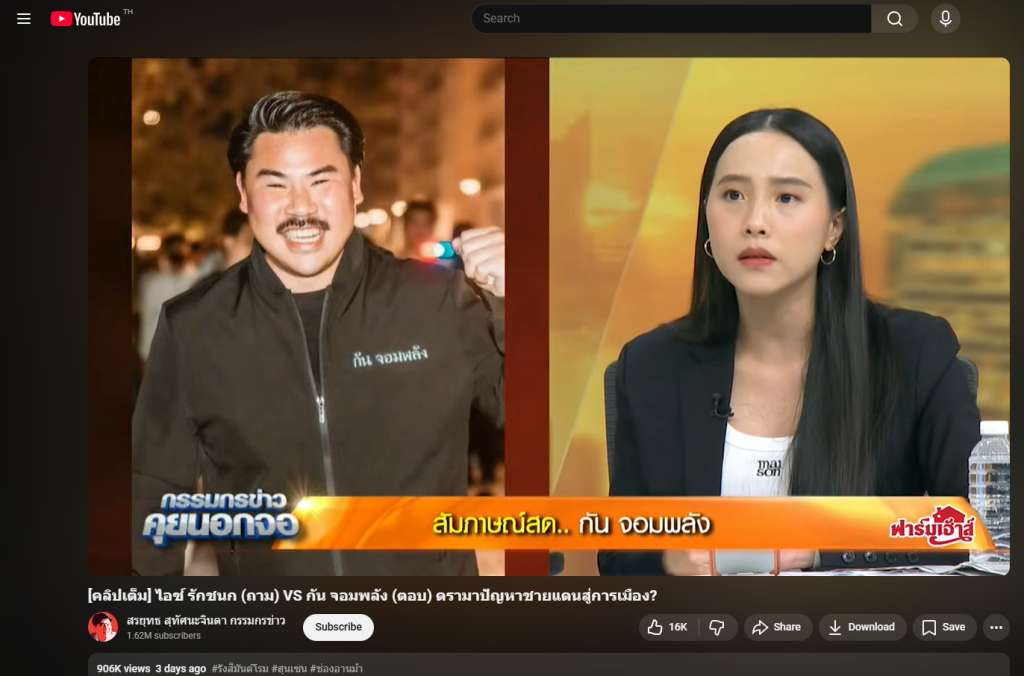
A screenshot shows the program “Kamkon Khao Khuay Nok Chor”, featuring a discussion between Kan Chom-Phalang and Ice Rukchanok on October 20, 2025.
However, after reviewing the full interview, which lasted over two hours and nineteen minutes, it was found that Kan Chom-Phalang never mentioned Putin at any point during the conversation.
Altered text and misuse of media logo to create fake news
As for the claim that the image came from Khaosod, verification found that the news image was actually taken from a post by Khaosod published on its official Facebook page on October 20, 2025. The original post stated:
“Your tone has changed, Khun Kan.”
“On that day, your tone, Khun Kan, was that of a demon-slayer—attacking everyone who sided with Cambodia and striking at anyone who said something your fans didn’t like. But today, your tone has changed. The tide of public opinion may no longer allow you to keep going and hurting others forever. So you’ve decided to change your tone, taking on the role of a saint who has been wronged. I truly sympathize with you, Khun Kan, for being under such heavy scrutiny. Sending you my sincere support.”
#IceRakchanok on #KanChomPhalang
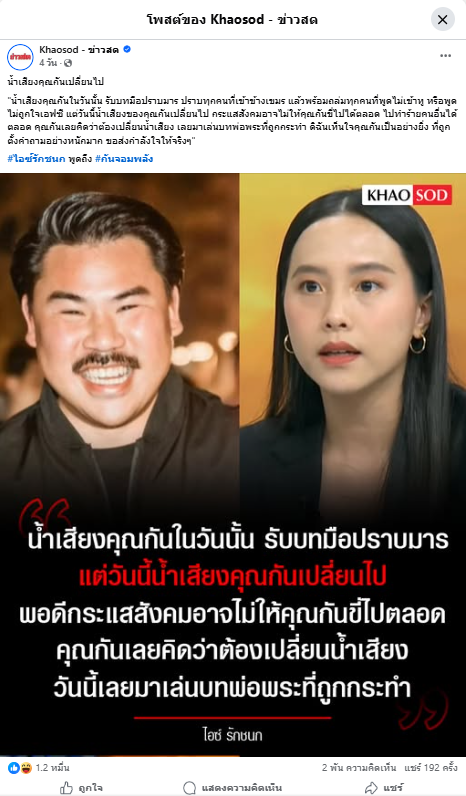
A screenshot shows the original Khaosod post, which contains none of the statements claimed in the fabricated version.
The text within the genuine image reads:
“Your tone that day, Khun Kan, was that of a demon-slayer. But today, your tone has changed — perhaps because the tide of public opinion may no longer allow you to keep going as before. Therefore, you decided to change your tone, taking on the role of a saint who has been wronged.”
This text does not match any of the content falsely attributed to the post.
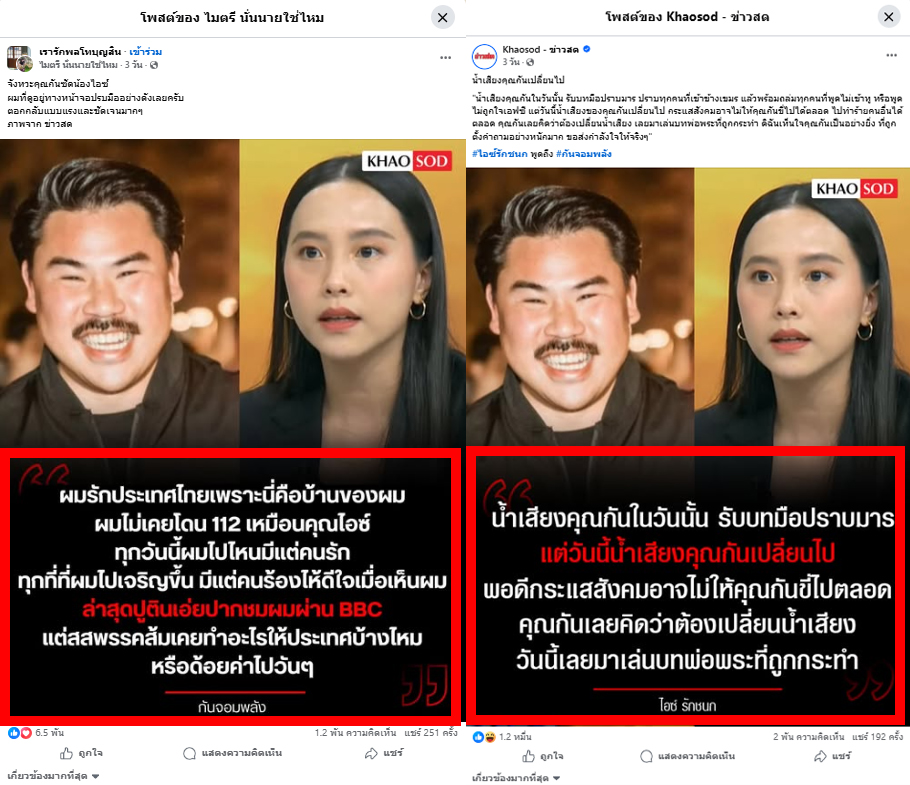
A screenshot shows a comparison between the fabricated post (left) and the original Khaosod post (right).
False Information Used to Create Fake News
As for the claim mentioning the BBC, an examination of news tags on the BBC website related to President Vladimir Putin found no reports indicating that Putin had made any statement or announcement through the BBC praising Kan Chom-Phalang, either this month or in any previous period.
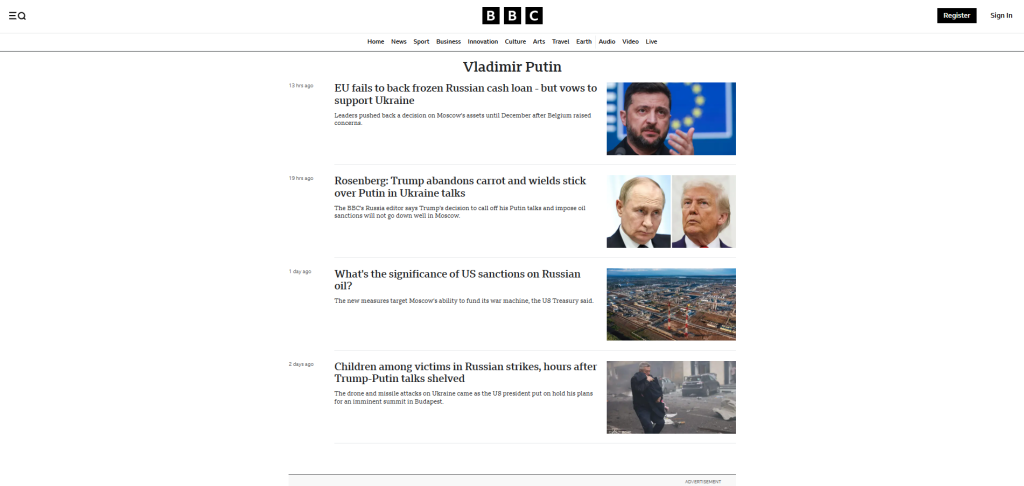
A screenshot shows search results for news tags related to Vladimir Putin, which reveal no reports mentioning Kan Chom-Phalang in any BBC news coverage.
Fake News: A Two-Edged Sword, Ready to Destroy All Parties
What this example shows is that real images may be used, but the quotes and narratives are fake. The caption in question exploited Section 112 of the Thai Criminal Code, which deals with lese-majesty, a highly sensitive subject in Thailand. It used this as a tool to stir division and stir patriotic sentiment, preying on a susceptible audience. This type of content poses danger to both individuals mentioned:
For Ice Rukchanok: the post may trigger hate or backlash because of the Section 112 reference.
For Kan Chom-Phalang: although he never made the quoted remark, the claim falsely associates him with appealing to or praising the monarchy, which is politically charged.
Thus, the content is deliberately false and designed to manipulate emotion and create division by using Section 112 as a weapon against both parties.
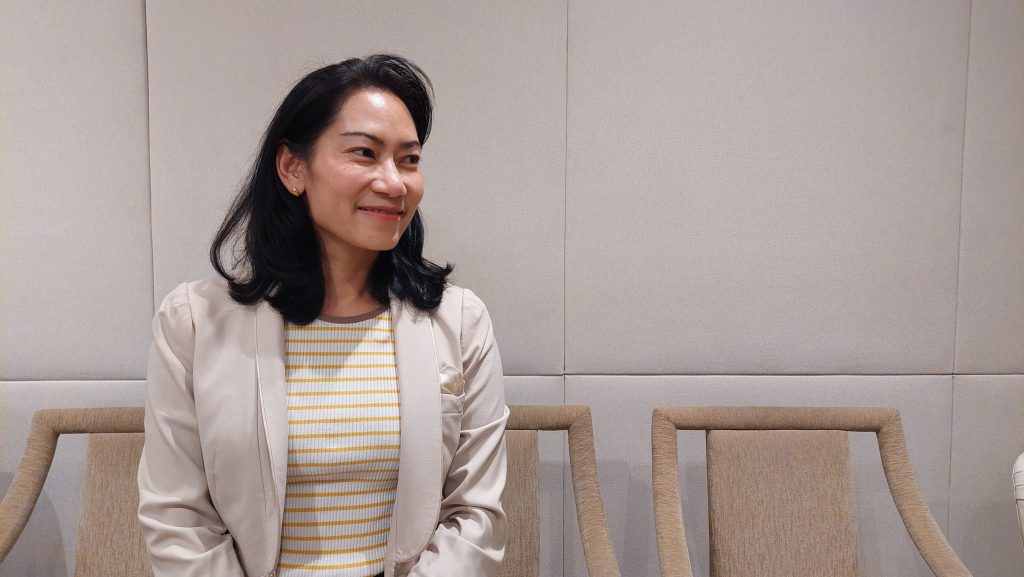
Assistant Professer Pijitra Pijitra Suppasawatgul, Researcher at the Institute of Asian Studies, Chulalongkorn University
The platforms used for posting also reveal another layer of concern — they often indicate organized groups or communities formed specifically to express opinions. Such groups can sometimes have more followers than public pages, and because they operate in closed or semi-closed environments, posts within them can easily influence members, even when the information is false.
This dynamic creates what communication experts call a “large echo chamber” — a space where people are constantly exposed to ideas that align with their own beliefs, while opposing viewpoints are filtered out. Members inside such chambers rarely hear alternative perspectives, reinforcing their preexisting convictions.
It is undeniable that Section 112 of the Thai Criminal Code (the lèse-majesté law) has become one of the most potent instruments — used in both genuine and fabricated news — to stir emotions, provoke hatred, and polarize the public, regardless of whether individuals support or oppose the law itself.
As noted by researchers, including those who have conducted studies on hate-speech communication, the pattern is consistent: the more deeply one loves a particular side, the greater the likelihood of hating the opposing side. These dynamics are driven not by rational debate, but by emotion and identity-based attachment.


